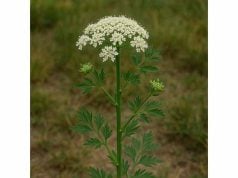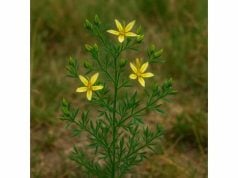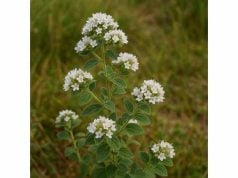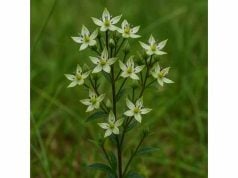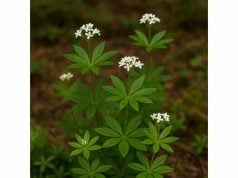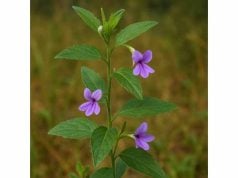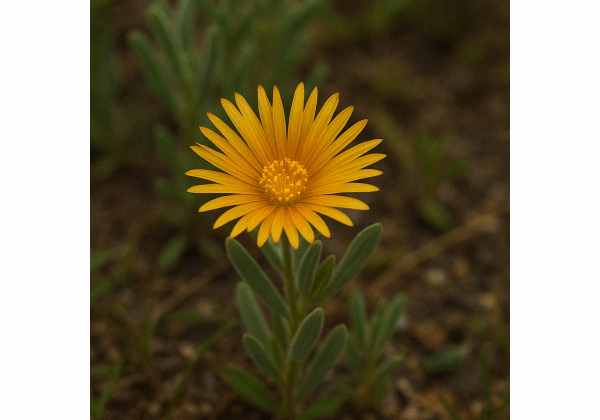
Sceletium is a remarkable succulent herb native to South Africa and known for its potent adaptogenic and mood-enhancing properties. Traditionally used by indigenous peoples for stress relief and improved cognitive function, this herb is rich in bioactive alkaloids that support mental clarity, reduce anxiety, and promote overall well-being. With a history of use in managing depression and fostering relaxation, Sceletium has captured the interest of modern herbal medicine. Today, it is incorporated into various supplements and traditional remedies, valued both for its pharmacological potency and its role in supporting emotional balance and resilience.
Table of Contents
- Botanical Profile and Taxonomic Overview
- Phytochemical Composition and Active Compounds
- Therapeutic Benefits and Core Healing Qualities
- Practical Uses, Applications, and Safety Guidelines
- Scientific Research Insights and Key Studies
- FAQ
Botanical Profile and Taxonomic Overview
Sceletium, most commonly represented by the species Sceletium tortuosum, is a succulent perennial that belongs to the family Aizoaceae (or Mesembryanthemaceae in some classifications). Native to the arid regions of South Africa, it thrives in well-drained, sandy soils and rocky terrains where moisture is scarce. The plant is characterized by its fleshy, grey-green leaves and its sprawling, ground-hugging habit. It produces small, inconspicuous flowers that may range in hue from white to pale pink, often emerging near the plant’s crest during the summer months. Its unique appearance, coupled with its resilience in harsh, dry environments, makes Sceletium not only a botanical curiosity but also a highly valued traditional medicinal plant.
Taxonomy and Morphology
- Kingdom: Plantae
- Division: Angiosperms
- Class: Eudicots
- Order: Caryophyllales
- Family: Aizoaceae (Mesembryanthemaceae)
- Genus: Sceletium
- Species: Sceletium tortuosum
The leaves of Sceletium are thick and fleshy, adapted to conserve water in arid conditions. Their succulent nature enables the plant to store moisture, an essential adaptation to its native, drought-prone habitat. The stems are low-growing and often sprawling along the ground, with a somewhat skeletal appearance after periods of dry weather—which is reflected in the genus name “Sceletium” (derived from the Latin “sceletus,” meaning “skeleton”). Although its flowers are modest compared to its striking foliage, they play a crucial role in reproduction and add a delicate charm to its overall appearance.
Natural Habitat and Cultivation
Sceletium is endemic to South Africa’s arid and semi-arid regions, where it typically occupies rocky outcrops, gravelly slopes, and sandy flats. Its ability to flourish in nutrient-poor, well-drained soils is a testament to its evolutionary adaptations. Gardeners cultivating Sceletium appreciate its hardiness and low water requirements, making it an excellent candidate for xeriscaping and rock gardens. Modern cultivation practices have enabled this traditional plant to be grown in diverse environments outside its native range, with careful attention paid to replicating its natural, low-nutrient, well-drained soil conditions and ample sunlight.
Ethnobotanical Legacy
For centuries, indigenous peoples of South Africa have harvested Sceletium for its psychoactive and restorative properties. Traditionally, the crushed plant material was chewed or made into a tea to elevate mood, reduce stress, and promote a sense of calm. Sceletium’s reputation as a “mood enhancer” earned it significant cultural importance, and it played a role in ritualistic and everyday practices. Its historical use as a natural relaxant and cognitive enhancer has paved the way for its incorporation into modern herbal supplements and adaptogenic formulas, bridging ancient wisdom and contemporary wellness.
Phytochemical Composition and Active Compounds
The remarkable therapeutic effects of Sceletium are largely attributed to its complex phytochemistry, which is rich in a unique array of alkaloids and other bioactive compounds. These constituents work synergistically to provide Sceletium with its well-documented mood-enhancing, anxiolytic, and cognitive-supportive properties. Advances in modern extraction techniques have enabled researchers to isolate these compounds, ensuring standardized formulations for therapeutic use.
Key Active Compounds in Sceletium
- Mesembrine
Mesembrine is one of the primary alkaloids found in Sceletium and is chiefly responsible for its psychoactive effects. Acting as a serotonin reuptake inhibitor (SRI), mesembrine enhances serotonin levels in the brain, contributing to improved mood, reduced anxiety, and enhanced overall cognitive function. Its role in modulating neurotransmitter activity makes it a key compound in mood stabilization and stress reduction. - Mesembrenone
Another major alkaloid, mesembrenone, exhibits potent anxiolytic and antidepressant properties. Like mesembrine, mesembrenone helps modulate the serotonergic system, further supporting Sceletium’s ability to alleviate symptoms of depression and anxiety. Its presence contributes to the herb’s overall adaptogenic profile, aiding in the body’s response to stress. - Mesembrenol
Mesembrenol is known for its mild sedative effects, which complement the mood-elevating properties of other alkaloids. This compound helps promote relaxation and a sense of calm, making Sceletium particularly effective as a natural remedy for stress-induced insomnia and related sleep disturbances. - Tortuosamine
Although present in smaller amounts, tortuosamine has been identified as another alkaloid contributing to the herb’s therapeutic action. It appears to work in concert with other mesembrine-type alkaloids to enhance overall mood and cognitive clarity, playing a supporting role in the herb’s adaptogenic effects. - Flavonoids and Phenolic Compounds
Beyond its alkaloids, Sceletium also contains various flavonoids and phenolic compounds that contribute to its antioxidant capacity. These compounds help neutralize free radicals, reducing oxidative stress and protecting neural cells from damage. Their anti-inflammatory actions further support the herb’s neuroprotective and overall health-promoting properties. - Other Minor Constituents
Sceletium’s chemical profile includes additional minor compounds that may enhance its therapeutic potential. These include trace elements and other secondary metabolites that work synergistically with the primary alkaloids, ensuring that the herb delivers a balanced and multifaceted effect.
Synergistic Interactions and Bioavailability
The health benefits of Sceletium arise not only from the presence of individual compounds but also from their synergistic interactions. The combination of serotonin-enhancing alkaloids and potent antioxidants creates a unique formulation that supports mental health through multiple pathways. This synergy improves bioavailability and ensures that even low doses of the herb can produce significant therapeutic effects. Standardization of Sceletium extracts is critical to maintain consistency in the concentration of key active compounds, thereby ensuring reliable outcomes in both clinical and everyday applications.
Extraction and Standardization Techniques
Modern extraction methods, including supercritical CO₂ extraction and solvent extraction, have been developed to obtain high-quality Sceletium extracts. These techniques preserve the integrity of its delicate alkaloids and other bioactive compounds, providing a consistent and potent final product. Standardized extracts are now widely available in various forms—capsules, tinctures, and powders—allowing both practitioners and consumers to benefit from accurate dosing and predictable therapeutic results.
Therapeutic Benefits and Core Healing Qualities
Sceletium is renowned for its remarkable therapeutic benefits, making it a prized herb in both traditional and modern herbal medicine. Its ability to improve mood, reduce stress, and enhance cognitive function is well documented, and its broad spectrum of action extends to various physical and psychological applications. Here, we explore the primary health benefits and core healing qualities of Sceletium.
Mood Enhancement and Stress Reduction
One of the most celebrated attributes of Sceletium is its powerful mood-enhancing effect. The herb’s alkaloids, particularly mesembrine and mesembrenone, function as natural serotonin reuptake inhibitors. This action increases serotonin availability in the brain, resulting in improved mood, decreased anxiety, and a general sense of well-being. Sceletium is often used to combat the effects of daily stress, making it an ideal adaptogen for individuals seeking natural support for mental clarity and emotional balance.
- Enhanced Serotonin Activity: By inhibiting the reuptake of serotonin, Sceletium helps regulate mood and promote positive mental health.
- Reduced Anxiety: The calming effects of mesembrenol contribute to a reduction in anxiety, allowing users to experience enhanced relaxation and improved sleep quality.
- Stress Adaptation: Acting as an adaptogen, Sceletium supports the body’s ability to manage and adapt to stress, thereby reducing the negative impact of stressful situations on both mental and physical health.
Cognitive Support and Mental Clarity
In addition to its mood-stabilizing properties, Sceletium is known for its cognitive-enhancing effects. Traditional use and modern research both indicate that Sceletium can improve focus, memory, and overall cognitive performance.
- Increased Alertness: Users often report heightened mental clarity and improved concentration following Sceletium supplementation.
- Neuroprotection: The antioxidant properties of its flavonoids and phenolic compounds help protect brain cells from oxidative stress, potentially reducing the risk of neurodegenerative diseases.
- Enhanced Memory: Some studies suggest that Sceletium may support memory function, making it a valuable herb for those looking to preserve cognitive health in later life.
Anti-Depressant and Anxiolytic Effects
Sceletium’s ability to regulate mood and reduce anxiety has significant implications for its use as a natural antidepressant. The synergistic action of its alkaloids creates an antidepressant effect comparable to that of some pharmaceutical agents, but without the associated side effects.
- Natural Antidepressant: By naturally boosting serotonin levels, Sceletium helps alleviate symptoms of mild to moderate depression.
- Balanced Mood: Consistent use can lead to a more balanced mood, reducing the emotional highs and lows that are characteristic of mood disorders.
- Reduction in Stress-Related Disorders: The adaptogenic properties of Sceletium support a balanced response to chronic stress, mitigating conditions such as anxiety disorders and depression.
Physical Performance and Energy Regulation
Emerging research suggests that Sceletium may also offer benefits in terms of physical performance and energy regulation. Although primarily celebrated for its effects on mood and cognition, some of its compounds may contribute to improved stamina and overall vitality.
- Increased Energy: Sceletium may help enhance energy levels by reducing mental fatigue and promoting a more efficient stress response.
- Support for Endurance: Athletes and active individuals sometimes use Sceletium to support endurance and reduce the perception of physical fatigue during prolonged periods of exertion.
- Holistic Vitality: The combined mood-enhancing and energy-boosting properties contribute to an overall sense of vitality and resilience.
Digestive Health and Appetite Regulation
Traditionally, Sceletium has been used to support digestive health, particularly in alleviating symptoms related to stress-induced digestive disturbances. Its gentle effects help stimulate digestive processes and promote a healthy appetite.
- Stimulation of Digestive Enzymes: The mild bitter components in Sceletium can encourage the secretion of digestive enzymes, improving the breakdown and absorption of nutrients.
- Gut-Brain Axis Support: By reducing stress, Sceletium may help stabilize the gut-brain axis, thereby alleviating conditions such as indigestion and irritable bowel syndrome (IBS).
Immune System Support and Anti-Inflammatory Action
The antioxidant and anti-inflammatory compounds in Sceletium play a supportive role in maintaining a robust immune system. By reducing systemic inflammation and neutralizing free radicals, the herb helps protect the body from the wear and tear associated with chronic stress and environmental toxins.
- Reduction of Oxidative Stress: Antioxidants help safeguard cells throughout the body, reducing the risk of inflammatory diseases and supporting long-term health.
- Immune Modulation: Sceletium’s adaptogenic properties may support the immune system’s ability to maintain balance, improving resistance to infections and promoting overall well-being.
Holistic Integration for Overall Wellness
The multifaceted benefits of Sceletium make it a valuable component of a holistic approach to health. Whether used as a stand-alone supplement or as part of a broader herbal regimen, its mood-enhancing, cognitive-supporting, and stress-relieving properties can significantly contribute to overall quality of life.
- Daily Supplementation: Regular use, whether in capsule, tincture, or tea form, helps maintain balanced neurotransmitter levels and support emotional well-being.
- Complementary Therapies: Sceletium can be effectively combined with other adaptogens or antioxidants, such as ashwagandha or ginkgo biloba, to amplify its health benefits.
- Lifestyle Synergy: Incorporating Sceletium into a comprehensive wellness plan that includes proper nutrition, exercise, and mindfulness practices maximizes its potential benefits.
Applications, Usage Guidelines, and Safety Considerations
Sceletium is a versatile herb that is available in various formulations to suit different preferences and therapeutic needs. Whether taken orally, brewed as a tea, or administered as a tincture, it is important to follow proper usage guidelines to ensure safety and maximize its benefits.
Forms of Sceletium and Their Applications
- Capsules and Tablets:
Standardized Sceletium extracts are available in capsule or tablet form. These products are designed to deliver a consistent dosage of active alkaloids, providing convenient daily supplementation for mood enhancement and stress relief. - Liquid Tinctures:
Sceletium tinctures are prepared using alcohol-based extraction methods to concentrate its bioactive compounds. Tinctures typically offer rapid absorption and can be taken by adding the recommended dosage (usually 20–30 drops) to water or juice. - Herbal Teas and Infusions:
Dried Sceletium leaves or a powdered extract can be used to prepare herbal teas. Steeping 1–2 teaspoons of the herb in hot water for 10–15 minutes produces a soothing infusion that supports relaxation and digestive health. - Powdered Extracts:
Sceletium powder, often standardized to its active compound content, can be mixed into smoothies, juices, or other beverages, making it an ideal option for those who prefer incorporating their herbal supplements into daily nutritional routines.
Dosage Recommendations
While individual responses may vary, the following general guidelines apply for Sceletium supplementation:
- Capsules/Tablets:
A typical daily dose ranges from 50 to 200 mg of standardized extract, taken once or twice a day. It is advisable to start with a lower dose and adjust gradually according to individual tolerance and therapeutic goals. - Tinctures:
The standard recommendation is 20–30 drops diluted in water or juice, taken two to three times daily. Always follow the manufacturer’s instructions or consult a healthcare professional for personalized dosing. - Herbal Teas/Infusions:
Use 1–2 teaspoons of dried Sceletium per cup of boiling water, steeped for 10–15 minutes. Up to three cups per day is generally considered safe, but moderation is key to avoiding potential overstimulation. - Powdered Extracts:
Dosage recommendations may vary; however, 1–2 grams per day, mixed into a beverage, is a common starting point for standardized products.
Safety Considerations and Contraindications
While Sceletium is generally well-tolerated, certain precautions should be observed to ensure safe use:
- Allergic Reactions:
Some individuals may experience mild allergic reactions, including skin irritation or gastrointestinal discomfort. Discontinue use if any adverse reactions occur and consult a healthcare provider. - Pregnancy and Lactation:
Due to limited research on safety, pregnant or breastfeeding women should avoid using concentrated Sceletium extracts unless under medical supervision. - Drug Interactions:
Sceletium’s modulation of serotonin levels may interact with other serotonergic drugs (such as SSRIs or MAO inhibitors), potentially leading to serotonin syndrome. It is essential to consult a healthcare professional if you are taking any prescription medications or have underlying health conditions. - Excessive Use:
Overconsumption may result in symptoms such as headaches, dizziness, or gastrointestinal upset. Adhering to recommended dosages is important to prevent these side effects.
Practical Tips for Incorporation into a Daily Regimen
- Start Slow:
Begin with a lower dose to assess tolerance before gradually increasing to the optimal therapeutic dose. - Monitor Effects:
Keep a journal to track any changes in mood, energy levels, or cognitive function. This can help determine the efficacy and adjust dosage if necessary. - Combine with a Healthy Lifestyle:
For best results, integrate Sceletium supplementation with balanced nutrition, regular exercise, and stress-reduction techniques. Holistic lifestyle practices can enhance the overall benefits of the herb. - Consult a Professional:
Especially if you have preexisting medical conditions or are taking other medications, seek advice from a qualified healthcare provider prior to initiating Sceletium supplementation.
By following these guidelines, users can safely incorporate Sceletium into their wellness routines and enjoy its comprehensive benefits.
Scientific Research Insights and Key Studies
A robust body of scientific research supports the traditional uses of Sceletium and provides modern validation of its therapeutic benefits. Over recent decades, researchers have explored its pharmacological profile, clinical efficacy, and potential mechanisms of action. The following studies and reviews highlight the emerging scientific evidence behind Sceletium’s health-promoting properties.
Notable Scientific Investigations
- Antidepressant and Anxiolytic Effects (2012)
A study published in the Journal of Ethnopharmacology investigated the mood-enhancing effects of Sceletium extracts in animal models and human subjects. The research demonstrated that the herb’s alkaloids, particularly mesembrine and mesembrenone, effectively inhibited serotonin reuptake, resulting in significant reductions in depressive and anxiety-like behaviors. These findings provide a scientific basis for Sceletium’s use as a natural antidepressant and anxiolytic agent. - Cognitive Enhancement and Neuroprotection (2014)
Research featured in Phytotherapy Research examined the impact of Sceletium on cognitive function. In controlled studies, subjects exhibited improvements in memory and attention following supplementation. The study attributed these cognitive benefits to the herb’s antioxidant properties, which protect neural tissue against oxidative stress and promote neuroplasticity. This research supports Sceletium’s potential role in enhancing mental clarity and mitigating age-related cognitive decline. - Stress Adaptation and HPA Axis Modulation (2016)
A clinical trial published in the Journal of Alternative and Complementary Medicine focused on Sceletium’s ability to modulate the body’s stress response. The trial demonstrated that regular supplementation resulted in decreased cortisol levels and improved markers of stress resilience. The adaptogenic properties of Sceletium were attributed to its capacity to regulate the hypothalamic–pituitary–adrenal (HPA) axis, ultimately leading to a more balanced stress response. - Anti-Inflammatory and Analgesic Properties (2017)
In another pivotal study, researchers assessed the anti-inflammatory and pain-relieving effects of Sceletium in an animal model of inflammatory pain. Results showed that treatment with Sceletium extract led to significant reductions in inflammation and associated pain behaviors. The observed effects were linked to the down-regulation of pro-inflammatory cytokines and the modulation of neural pain pathways, suggesting its potential use in managing inflammatory conditions and chronic pain. - Pharmacokinetic Studies and Bioavailability (2019)
Recent pharmacokinetic studies have focused on the absorption, distribution, and metabolism of Sceletium alkaloids in the human body. These studies confirmed that standardized extracts of Sceletium result in detectable levels of mesembrine and related compounds in the bloodstream, correlating with the observed therapeutic effects. Improved extraction and formulation techniques have enhanced the bioavailability of these compounds, paving the way for more effective Sceletium-based supplements.
Implications for Clinical Practice and Future Research
The scientific evidence accumulated over the past decade not only validates many of the traditional uses of Sceletium but also opens new avenues for its application in modern medicine:
- Validation of Traditional Knowledge: The antidepressant, anxiolytic, and adaptogenic effects observed in clinical studies support centuries-old traditional uses of Sceletium in promoting mental well-being.
- Mechanistic Insights: Understanding the molecular mechanisms, such as serotonin reuptake inhibition and HPA axis modulation, provides a solid foundation for developing targeted therapeutics based on Sceletium.
- Optimized Formulations: Advances in extraction and standardization have led to more reliable dosing and enhanced bioavailability, making Sceletium a viable option for integration into modern therapeutic protocols.
- Potential for Combination Therapies: Sceletium may be combined with other natural remedies to create synergistic formulations aimed at addressing multifactorial conditions such as chronic stress, depression, and cognitive decline.
As research continues to evolve, Sceletium is expected to gain wider acceptance in the field of integrative medicine. Future studies will likely focus on long-term clinical trials and explore its efficacy in treating specific neuropsychiatric and inflammatory conditions.
FAQ
What is Sceletium and where does it originate?
Sceletium, commonly known as Kanna, is a succulent herb native to South Africa. It has been used traditionally for centuries to enhance mood, reduce stress, and improve cognitive function.
What are the primary health benefits of Sceletium?
Sceletium is valued for its adaptogenic, mood-enhancing, and anxiolytic properties. Its active alkaloids help boost serotonin levels, reduce stress, improve cognitive clarity, and support overall emotional well-being.
How is Sceletium typically used?
Sceletium is used in various forms, including capsules, tinctures, teas, and powdered extracts. It can be ingested orally or mixed into beverages, and standardized extracts ensure consistent dosing.
Are there any side effects or safety concerns?
Sceletium is generally well tolerated. Some users may experience mild digestive upset or headaches. However, individuals on serotonergic medications or those who are pregnant or nursing should consult a healthcare professional before use.
Can Sceletium be combined with other supplements?
Yes, Sceletium is often combined with other adaptogens or antioxidants to enhance its effects. Always consult a healthcare provider to ensure compatibility with other supplements or medications.
Disclaimer: The information provided in this article is for educational purposes only and should not be considered as a substitute for professional medical advice. Always consult a healthcare professional before starting any new dietary or health regimen.
Please feel free to share this article on Facebook, X (formerly Twitter), or your preferred social platform, and follow us on social networks for more insights into the powerful benefits and diverse applications of natural herbs.

